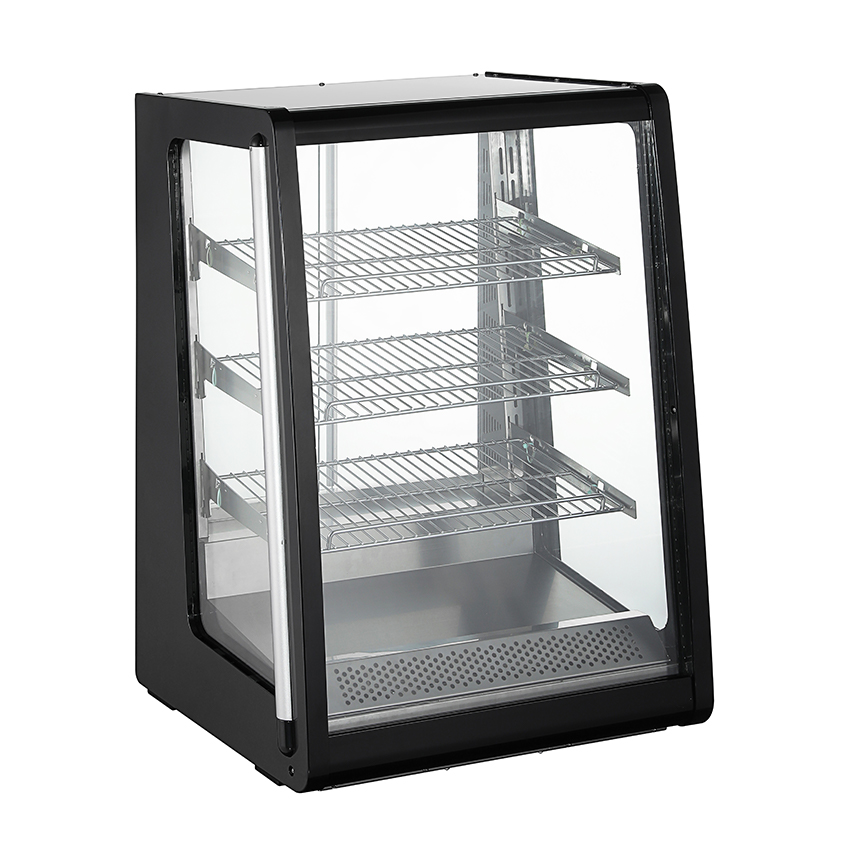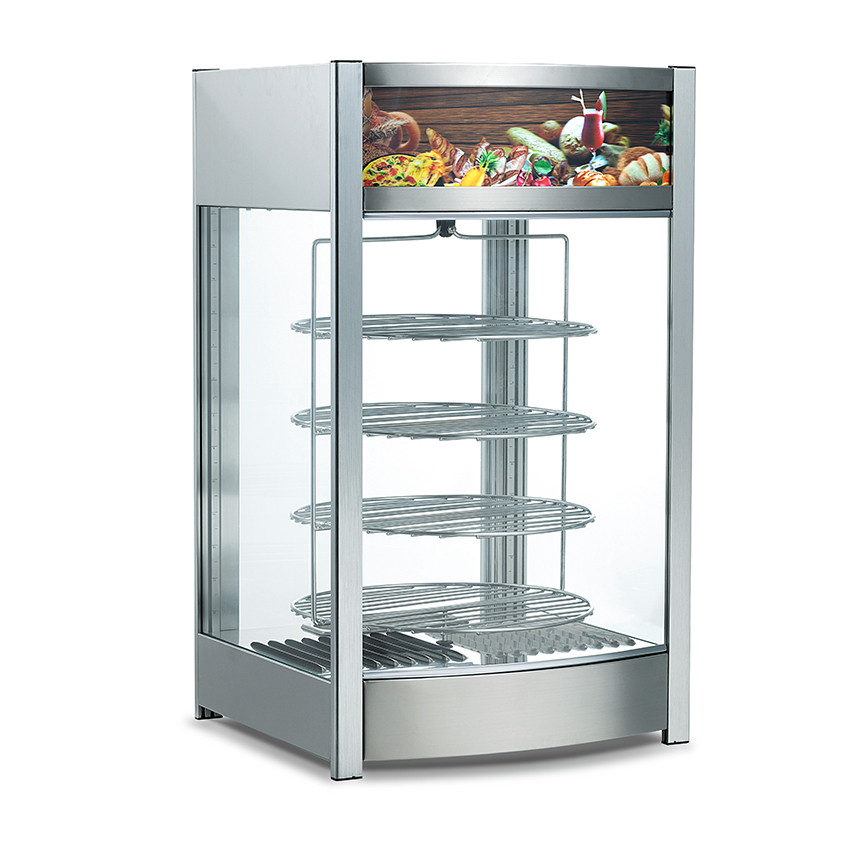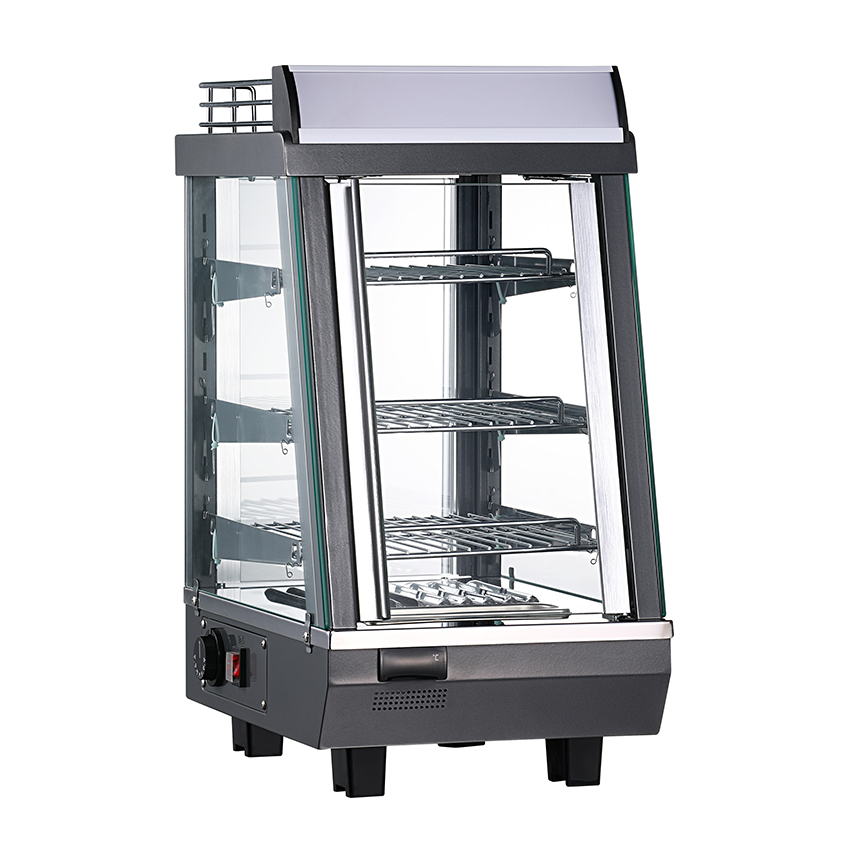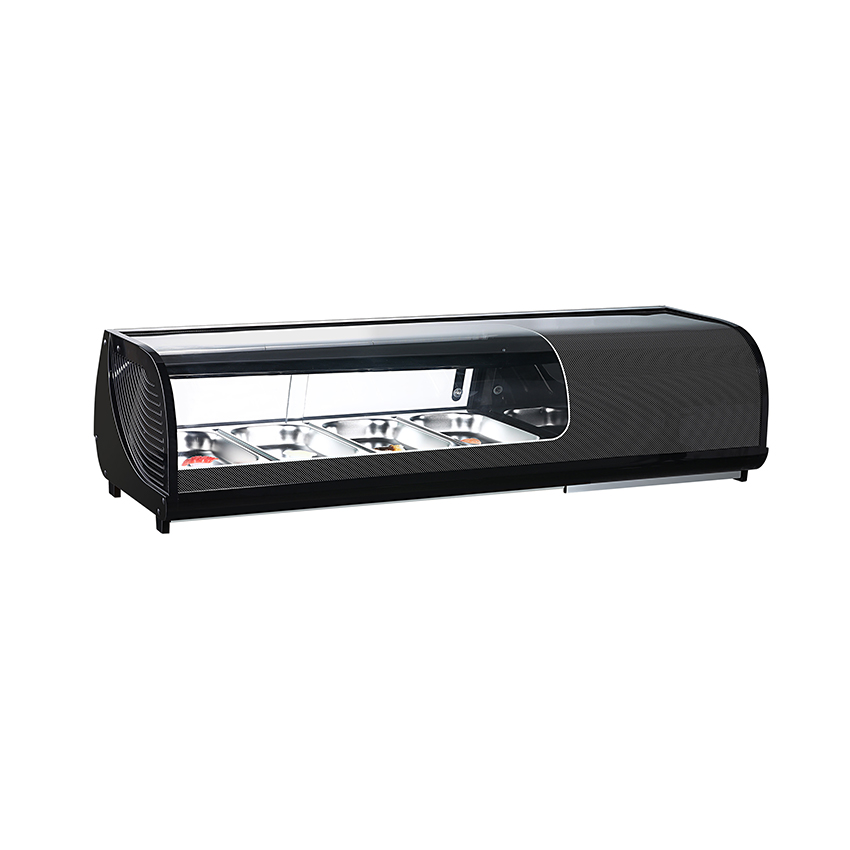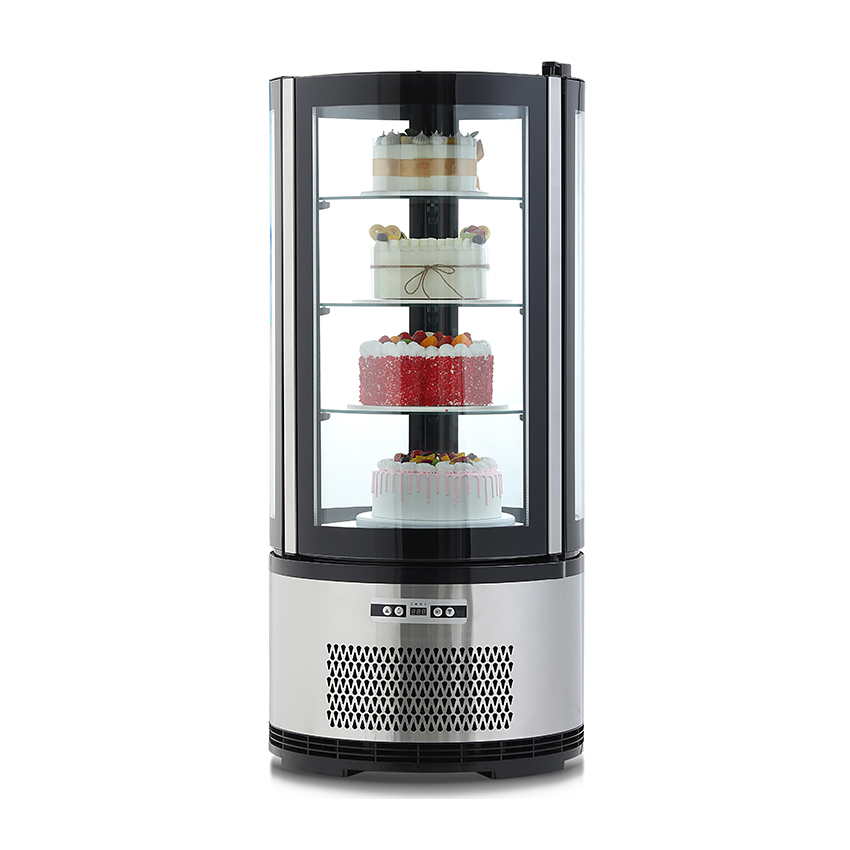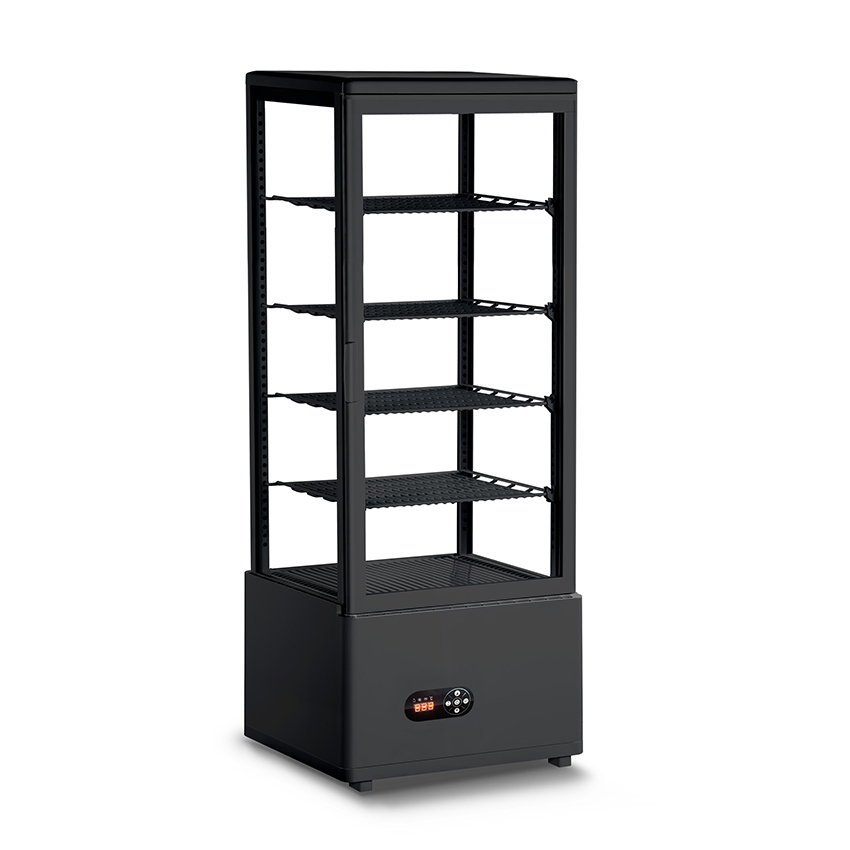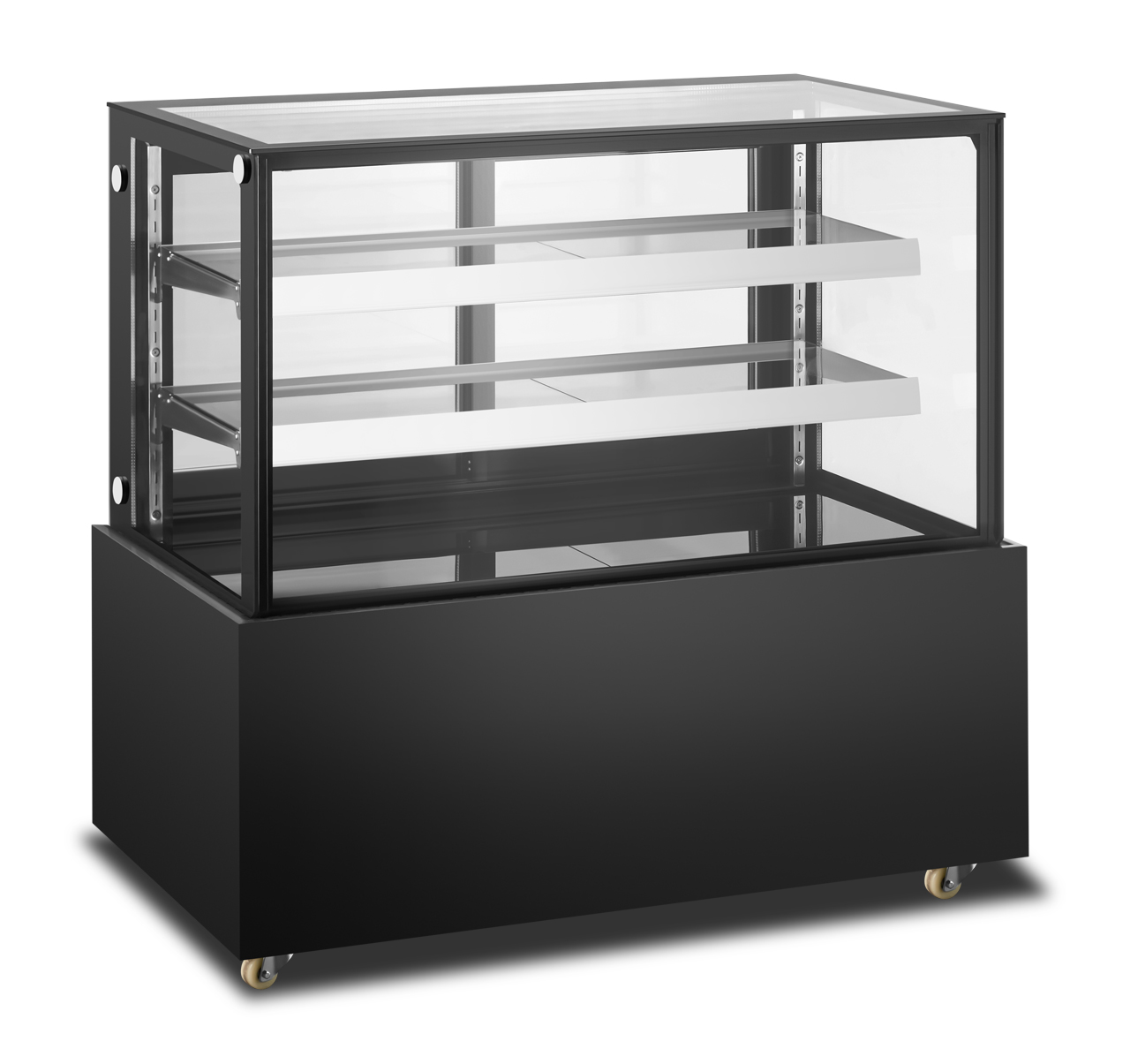Content
1. Why do bakeries need multi-product insulated display cabinets?
Visual stimulation stimulates purchase desire
Transparent glass sliding doors: 360° display without blind spots, allowing the color and texture of bread and cakes to speak for themselves.
Warm LED lighting: Enhances the luster of food (recommended color temperature 3000K) and creates a "fresh from the oven" atmosphere.
Scientific zoning increases average order value
Multi-temperature zone design: The upper level displays room-temperature pastries (such as croissants) while the lower level holds refrigerated mousse cakes, meeting diverse needs.
Tiered display: Placing high-priced products at eye level (1.2-1.5 meters) can increase sales by 20%.
Freshness preservation technology reduces waste
Constant temperature and moisture retention: Temperature fluctuations of ≤±1°C delay bread aging, extending shelf life by 1-2 days.
Anti-fog glass: Prevents condensation from blurring the view and maintains the display quality.
2. Four Display Techniques to Boost Sales
Prime Location: The "3-Second Rule"
Top shelf: Place signature products with small signage explaining the ingredients' story.
Middle shelf: Display high-margin products with "Limited Edition" labels to create a sense of scarcity.
Color and Layering
Contrasting colors: Yellow (pineapple buns) paired with dark brown (chocolate rolls) enhances visual impact.
High-Low Stagger: Use cake stands to create layers and avoid flat displays.
Dynamic Marketing Mix
"Combo Zone": Displaying items like "Breakfast Combo" (bread + coffee) can increase average order value by 15%.
Tasting Interaction: Displaying small plates of samples next to the counter can increase conversion rates by 30%.
Data-Driven Product Selection
Use sales data to eliminate low-traffic products and introduce 1-2 new products weekly to maintain freshness.
3. A Guide to Operating Precautions for Multi-Product Insulated Display Cabinets
Daily Use Guidelines
- Key Temperature Management Tips
First Startup:
Run the cabinet empty for 2 hours before adding food.
Recommended Temperature Settings:
Bread: 4-8°C
Dairy Products: 2-4°C
Ready-to-eat Foods: 0-2°C
Temperature Monitoring:
Record the actual temperature once daily, morning and evening (deviation from the set point should be ≤1°C).
Calibrate using a separate thermometer (once per month).
- Loading Precautions
Capacity Control:
Leave at least 30% of the cabinet empty to ensure air circulation.
Observe the shelf load limits.
Placement Guidelines:
Let hot food cool to below 60°C before adding food.
Liquid products should be sealed and placed on the lower shelf.
Avoid blocking the air vents (leave 5cm of space at the front and back).
Cleaning and Maintenance
- Cleaning Procedure
Daily Cleaning:
Wipe the glass door with a slightly damp microfiber cloth (do not use chemical cleaners).
Pour out any accumulated water from the collection tray promptly.
Deep Cleaning (once a week):
Remove all shelves after powering off.
Clean the inner container with a neutral detergent (pH 6-8).
Air dry for 30 minutes before powering on again.
- Key Component Maintenance
Sealing Strip Maintenance:
Apply petroleum jelly monthly.
Inspect for cracks (if leaking, replace immediately).
Condenser Maintenance:
Clean dust with a soft brush quarterly.
Maintain a 20cm clearance around the back of the heat sink.
Energy-Efficient Operation Tips
- Power Consumption Optimization Plan
Time Management:
Raise the set temperature by 2-3°C during non-business hours.
Enable energy-saving mode at night (if available).
Door Opening Management:
Single door opening duration ≤ 30 seconds.
Total door openings recommended ≤ 80 times per day.
- Environmental Control
Ideal Location:
Away from heat sources (≥ 1.5m between oven and stovetop).
Avoid direct sunlight.
Safety Warnings
Do not scratch the glass door with sharp objects.
Do not place heavy objects on top (weight limit 5kg).
Leakage Protection: Test the ground wire monthly.
Troubleshooting
- Troubleshooting Common Problems
|
Symptom |
Preliminary Solution |
Repair Criteria |
|
No cooling |
Check power/temperature control settings |
No cooling for 2 hours |
|
Unusual noise |
Check if the appliance is placed securely |
Noise > 60 decibels |
|
Frequent frost |
Check door seal tightness |
Frost thickness > 5mm |
- Long-term inactivity:
Use for more than 7 days:
Empty and thoroughly clean
Disconnect power
Leave door gaps to prevent odors


 English
English русский
русский Español
Español Français
Français عربى
عربى italiano
italiano
